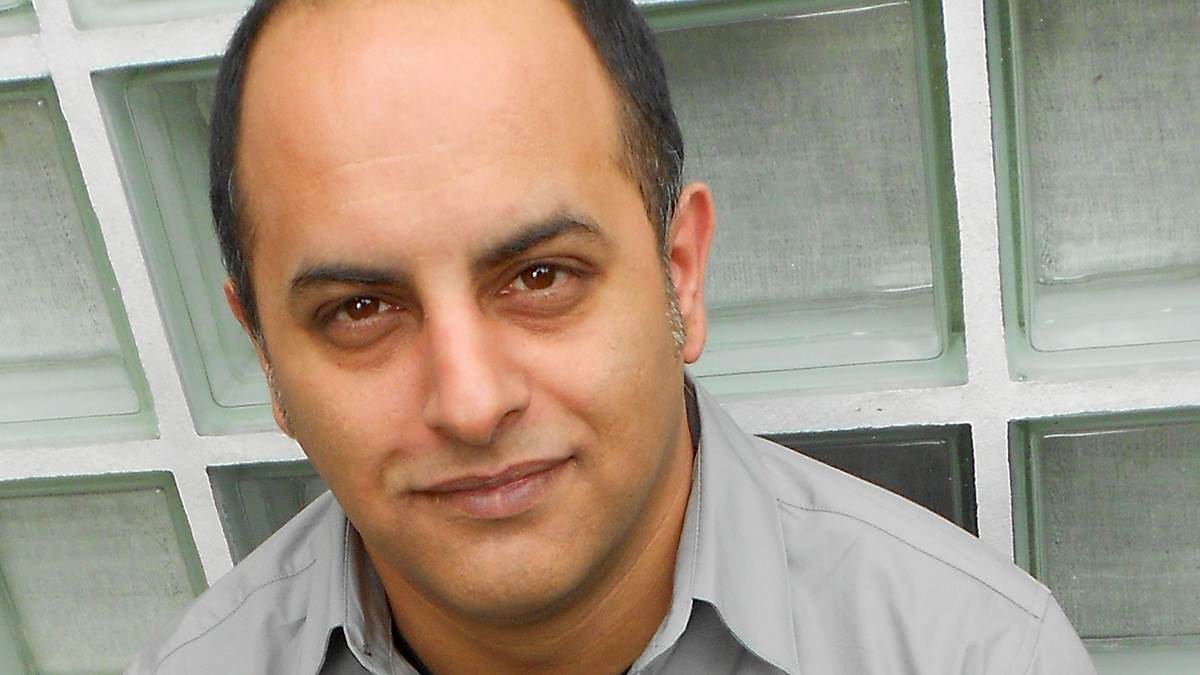Why reading for pleasure is vital
Published on: 28 May 2012 Author: Bali Rai
The critically acclaimed writer of books such as Rani & Sukh, The Last Taboo and Killing Honour Bali Rai became our sixth Writer in Residence back in 2012. In this blog Bali spoke about school author visits and the importance to promote reading for pleasure and not just literacy.

During my many school visits I return to one topic more than any other - the importance of reading for pleasure. It is one the most vital things you can do and increases your chances of success in whatever field you choose. Unfortunately some of your peers are reluctant readers and that is something I want to see changed forever.
The benefits of reading for pleasure are pretty difficult to measure, in a 'let's count the numbers' sense. However, that doesn't mean that they don't exist. I've grown tired of hearing from commentators talking about the death of the book.
I've joined and supported campaigns that aim to protect and promote libraries and their staff, in schools and in the wider community. I've also made it my mission to get you reading. All of this comes from a single belief, one that many of my fellow authors also hold. You see if our country is going to grow and prosper we need to invest in our future - invest in YOU. That means we must ensure that all young people are given the chance to fulfill their potential. Books and libraries, therefore, have a vital role to play.
Obviously access to school is critical and we are lucky enough to live in a society where every one of you receives an education. However, it strikes me as odd that many parents and even some teachers don't understand that, beyond the national curriculum, a huge factor in your success is reading and enjoying books. Someone who reads fifty books a year IS more likely to succeed than someone who doesn't read many books at all. The 'pay-off' for all that reading will be felt across our society. The better read, better educated your generation becomes, the greater the benefits for all of us. It will sound naïve in this time of supposed economic woe, but in my opinion we shouldn't even count the cost of providing books, libraries, literacy projects etc... No - what we should be doing is insisting that some of our national income is spent on such things. The fact that we generally don't insist on this is a crying shame.
During one particular visit, I met a young man who challenged my views about reading for pleasure. He asked me how reading words from a page could help him to become successful. I replied that he should exercise his brain as much as any other part of his body.
In front of his entire year group I pointed out that it would be impossible for me to cut open his head, take out his brain, and make it exercise in the traditional sense. Our brains can't play football, go swimming, or run marathons. What they can do, I said, is become stronger by being fed with knowledge and ideas. The more you feed them, the better they become, and that can only be a good thing. I also told the audience to be nice to nerds. When they asked why, I smiled. You see nerds should be proud of themselves. They should stand up tall and shout about their love of knowledge from the rooftops. Nerds rule the world - not bad boys, not those who are 'too cool for school' - nerds. If you're a nerd, go and get yourself a t-shirt with the words 'nerd and proud' printed on it, in huge lettering.
I believe, too, that there is a difference between printed words and those you see on computer screens. In my opinion, we process information better on paper than we do from a monitor. When I write, my first draft is always typed but everything else is done in the traditional way. In fact, I cannot edit straight onto a screen because I find it impossible. Instead I print out each chapter, read what I've written and make notes. Many writers I've spoken too do the same thing. It might sound old fashioned in this age of e-readers and editing software but I honestly believe that the printed word is a vital. Last year I heard of a well-known public school that did away with real books and 'went digital' and I wanted to cry. Real books are as important as food. That doesn't mean I oppose the digital formats; I can see that e-books complement printed books. However they should never be a replacement for them, just as digital music files such as MP3 should never completely replace true analogue recordings for music lovers. In food terms, and to paraphrase a famous Hollywood legend, I see real books as steak. E-books, whilst convenient etc... are like fast food. I don't mind the latter occasionally but I'd much rather have the former.
I guess the point is this: however we access reading, we should never have to justify our defence of books, libraries and reading for pleasure.
We should insist that our politicians invest in the future by making the money available to promote literacy. YOU should insist on it. Every single person who helped to create computers, the Internet and other forms of digitization, was educated with the help of real books. They were bookish nerds who read for pleasure alongside their studies. They had access to well-stocked libraries and the staff that run those temples of knowledge. YOU should demand the same. Reading for pleasure, and having the ability to do it, is THAT vital.






Add a comment